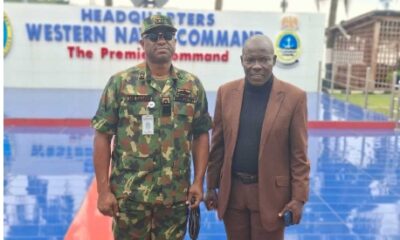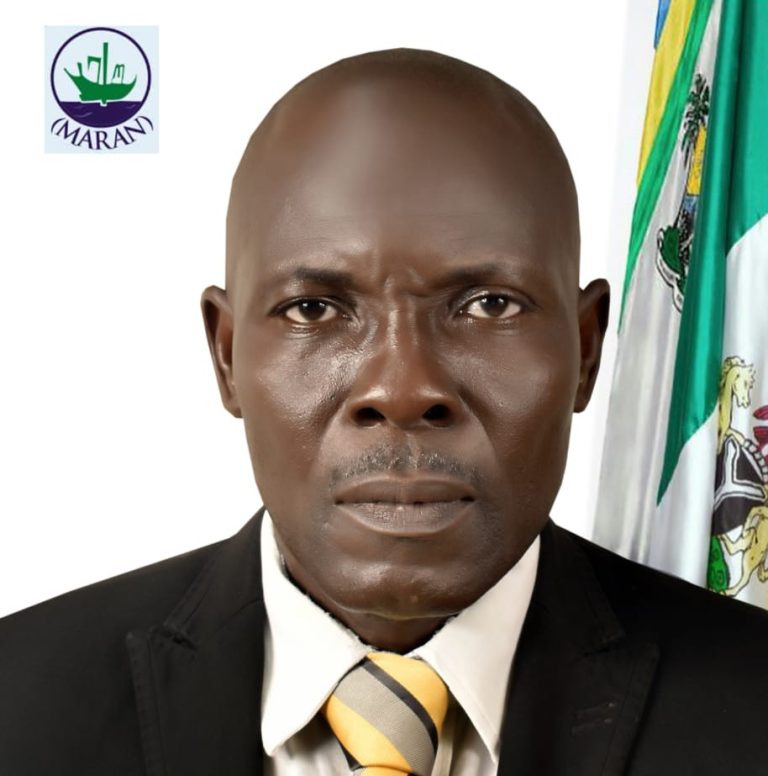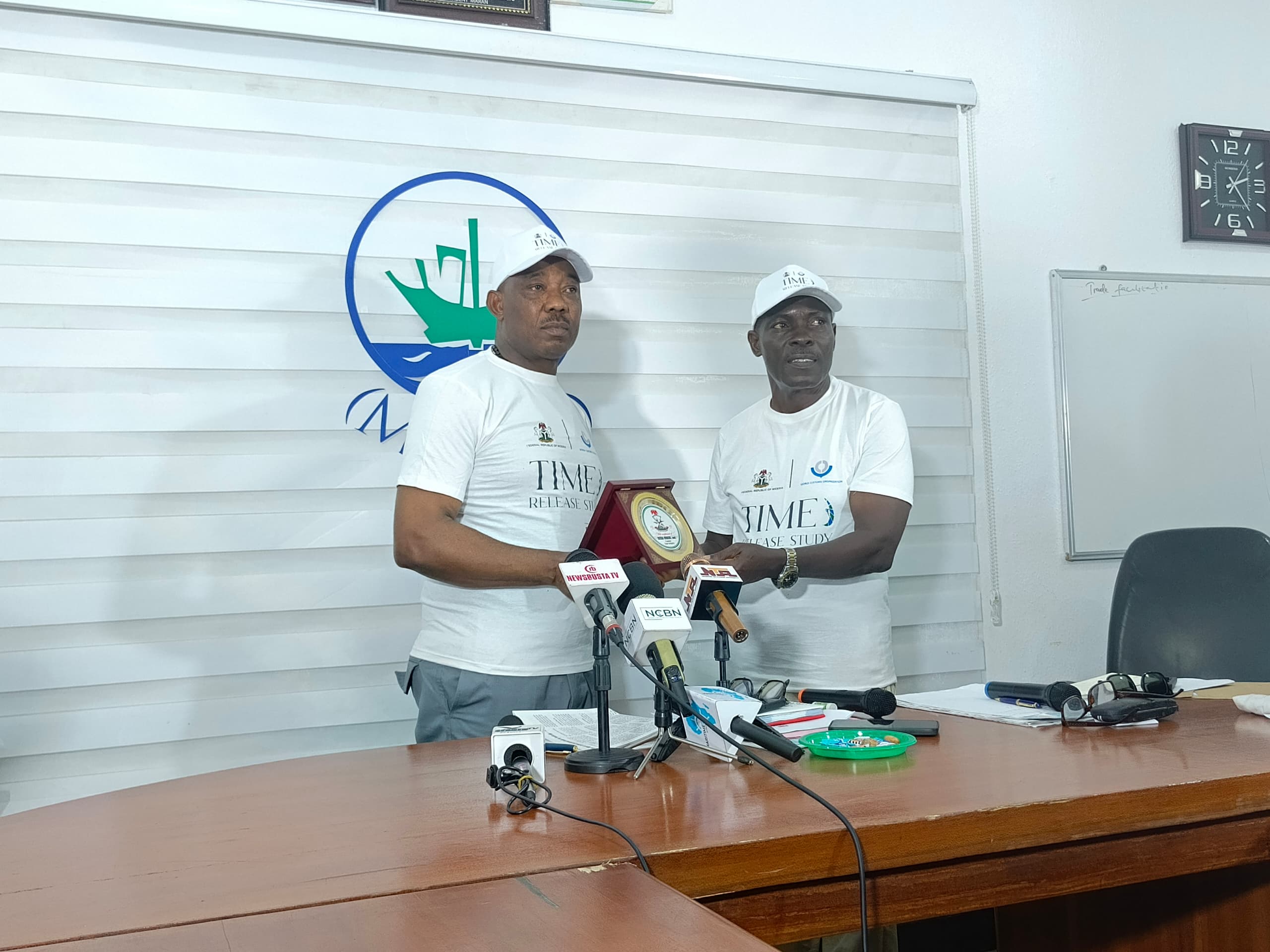Crime
Tantita Blows The Lid On Crude Theft, Saves Nation $40m Daily Loss

BY EGUONO ODJEGBA
Nigeria’s leading private maritime security firm and the nation’s critical development partner, Tantita Security Services Limited (TSSL) has provided a graphic details of how the federal government has been losing crude revenue through multiple connivance, and says it has forestalled crude oil theft saving the country an estimated $40million daily loses.

Captain Warredi making disclosures during a panel session at the workshop
Speaking at one day workshop with the theme “Maritime Security: Emerging Threats And Actionable Steps” Tantita Executive Director, Technical Operations, Captain Enuisoh Warredi said crude smuggling has been effectively challenged and significantly brought down, adding that its partnership has contributed to restoring the nation’s hitherto OPEC Quota imbalance. 
Captain Warredi explained that crude smuggling has a far more higher scope than is reported even as he disclosed that illegal crude refining which is only a part of the entire crime has become more technologically driven in response to the increased combined security pressure mounted by the military in collaboration with Tantita.
Holding participants at the workshop organized by the Maritime Reporters Association of Nigeria (MARAN) at the Rockview Hotel Apapa Lagos last Wednesday spell bound with revelations of its onslaught against crude thieves and the extent the brisk business is rubbing off negatively on both the national security and economy.
Warredi says some of the perpetrators have resorted to planting CCTV cameras in the creeks aimed at monitoring the movement of its operatives; for possible counter measures, as some of the criminals are armed with sophisticated firearms.

Seated as members of the panel are from l-r, Onilieman, Adewumi and Captain Alao
The former director, technical operations with the Nigerian Maritime Administration and Safety Agency (NIMASA) informed that crude theft and maritime crimes extends beyond the Niger Delta region, noting however that its operations has led into fresh discovery on the modus operandi of the criminals; and shocked his audience with further revelations about the crude mode of illegal refining and crude stealing that has done irreparable damage to the ecosystem.
His words, “We have places where grass may not grow for the next 100 years because of crude oil theft and associated activities. In the past, these operators utilized fire to process the crude oil but they realized that security operators have drones and night vision capabilities to see the fire trails.
“What did they do? They switched to electricity, but we discovered their illegal activities with electric and they moved to phosphoric acid. They pour the crude oil into several drums and pour phosphoric acid, then wait for six hours for the acid to convert the crude to diesel that will be fetched from the top.”
He said when the heat from Tantita intensified, and having chased most of the perpetrators away from the land areas, they re-strategized and moved to the creeks to where they now focus more on attacks on oil well heads.
“What they do is that they connect hoses from the wellheads into their tanks. These transactions usually take place at night as they go to the wellheads with canoes to fetch crude oil without minding the pollution or possibility of fire outbreak.
“If the pressure isn’t strong enough, they use a reservoir to fetch the oil. Some of these oil connections flow through cassava farms and farm settlements into uncompleted buildings that you wouldn’t suspect to be involved in crude oil theft.”
He also made more startling revelations on the otherwised perceived exclusively dollarized crime, and how it has changed scope and degenerated into an all comer’s affairs, which other stakeholders reasoned was in response to increased hardship by many citizens.
“Most of the oil is locally refined from the Niger Delta, a vessel can bring 10,000tons from Europe and take 60,000tons from Niger Delta and falsify the documents, claiming it is from Europe. That is not all, the transportation of stolen oil is done via ships and trucks, they also use trucks to transport it to neighbouring Cameroon, Niger Republic, Chad and so on, Nigerian oil goes everywhere.

“The biggest Nigerians are usually concerned about is that ships are coming to steal the oil, but it is not only the ships that steal the oil. These oil thieves bridge the pipeline and pass the oil through the bottom of canals and it flows into illegal refineries.
This is not only a Niger Delta thing, it happens everywhere there is oil in Nigeria, from Imo State, to Akwa Ibom, Ondo and the rest. They sack the crude, they put them in bags, carry them to the waterside for sale. You will be surprised how smart these people are, you will be walking but you can never know that under the ground, tiny pipes have been laid to siphon crude from the areas.”
According to Warredi, “The business is not discriminatory at all, even Keke NAPEP carries crude. The business is also gender friendly, you will find women and children inside the bush working and contributing their share to oil theft.
“There are so many people involved, and that is why so many people are against us. Some of the trucks look very benign, you will not suspect anything wrong with them, but when you open the back of the trucks, you will see crude oils in bags.”
He posit that there is local and international conspiracy in Nigeria’s crude smuggling to the extent of its scope, and also disclosed the level of ingenuity brought to bear by the local crude thieves.
“As we are apprehending them, they are also changing their game, there is an international ring sponsoring them. The design of the trucks are altered, outwards it looks like a truck, but inside, it is a tank. If you go to the Niger Delta, at every kilometer, there is a road block, but how does these trucks get past these road blocks?
“We have chased them from the fields, now they are targeting the well heads; they connect very long hoses to these wellheads and fetch the crude. The crude is transported under house foundations, and inside the house is where they fetch the oil directly into trucks and so on. We have thousands of points like that.
“What they do is that first, they come to Lagos to collect all the right documentation to load oil. They will now take six number plates, get approval for one number, and they forge five with same number… all the trucks have same documentation with same number on all the trucks.
“They have CCTV Mounted inside the bush, this gives them advance warning that you are coming, so that they can prepare for your arrival. We have recovered quite a lot of CCTV cameras inside the bush”, Waredi stated.
With a staff strength of 8,957,000 direct workers, made up of 38,221,000 community youths and 21,981,000 intelligence agents, Tantita has since etched its name on the map of maritime security operations, raising the index of performance.
President of MARAN, Mr. Godfrey Bivbere in his welcome address lamented the recurring activities of piracy attacks and related maritime security threats in the Gulf of Guinea (GoG) and urged the federal government and stakeholders to adopt a more purposeful and sterling approach aimed at combating the scourge.
He added that MARAN was equally worried about the high profile illegal fishing linked to international syndicate he says hadspassed with little or no checkmate.
“MARAN is also worried about observed dissonance in the collective national effort to combat maritime economic crimes and crude oil smuggling, and call on the federal government and its relevant agencies to improve on coordination. I want to also especially call on the office of the National Security Adviser to the President, to have a firmer grip and supervision of the existing collaboration between state and non-state actors’ roles, in this regard.
“We challenge the Nigeria Government and her regional counterparts to come up with a more workable and result oriented approach to the fight against maritime insecurity in the GOG. We believe that until and unless the international syndicates involved in the menace are confronted, apprehended and regularly exposed, through international collaboration as often happens with local criminals, the situation will not achieve any purposeful deterrence.”
The MARAN Annual Lecture was attended by a cross section of stakeholders from the nation’s maritime sector including the former Minister of Interior, Capt Emmanuel Iheanacho, President General of Maritime Workers Union of Nigeria (MWUN) Comrade Adewale Adeyanju, Chief Isaac Jolapamo, Vice President of Association of Nigerian Licensed Customs Agents (ANLCA) Prince Segun Oduntan, President, Maritime Security Providers Association of Nigeria (MASPAN), Mr. Emmanuel Maiguwa, Director General of Nigerian Maritime Administration and Safety Agency (NIMASA), represented by the Assistant Director, Public Relations, Mr. Osagie Edward, former President of ANLCA, President, NISA, Otunba Sola Adewunmi, Prince Olayiwola Shittu, who chaired the occasion, Chief Eugene Nweke and others.
Also, Mr. Sesan Onileimon former MARAN President and other veteran maritime journalists including Alex Akao, John Iwori , Foster Obi, Ayanwu Eyeribe graced the occasion.



































